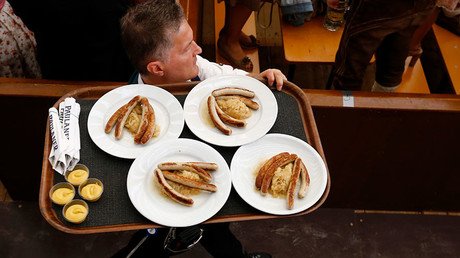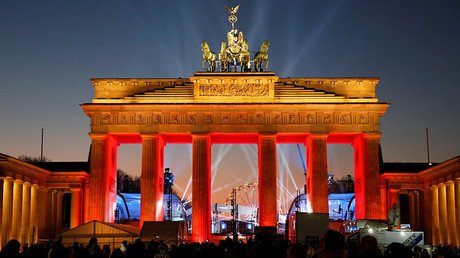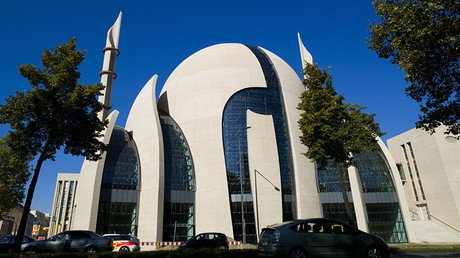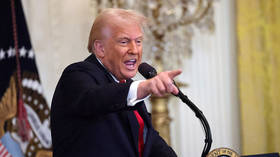Muslim public holidays in Germany? Interior minister’s proposal met with furious backlash
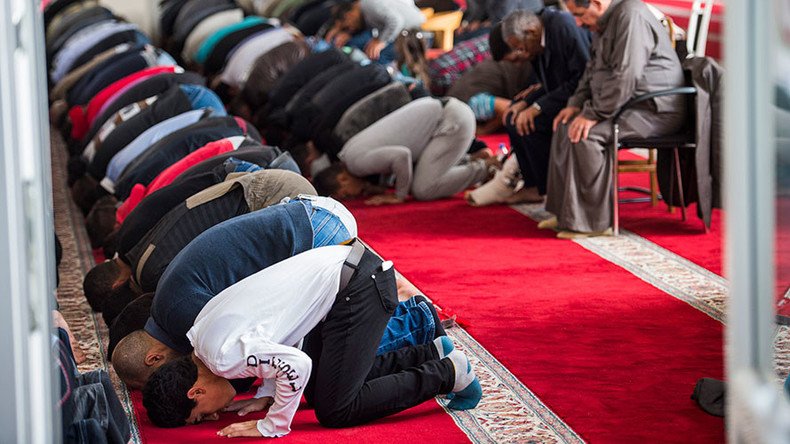
German Interior Minister Thomas de Maiziere prompted a backlash from his own party and political allies by suggesting that Germany introduce Muslim public holidays. He was, however, backed by the leader of the Social Democrats, Martin Schulz.
“I am ready to discuss the issue of whether we should also introduce a Muslim public holiday,” de Maiziere said early this week, adding that the German authorities “could probably easily do that.”
He went on to explain that, in some German states where many Catholics live, there are already some religiously defined Christian public holidays, while in other parts of the country, they are not officially introduced.
“In places where there are many Muslims, why cannot one discuss also [the introduction] of a Muslim public holiday?” the minister said at an election event staged by his party, Chancellor Angela Merkel’s Christian Democratic Union (CDU), ahead of regional elections in Lower Saxony.
His proposal, however, quickly provoked a wave of indignation within the ranks of his own party as well as among their Bavarian allies, the conservative Christian Social Union (CSU).
“Our Christian legacy is non-negotiable,” Alexander Dobrindt, the head of the CSU faction in the German federal parliament, said, commenting on de Maiziere’s statement.
“Introduction of Muslim public holidays in Germany is out of question,” he added.
His words were echoed by another CSU member, interior policy expert Stephan Mayer, who said that “Germany has for centuries carried the legacy of Christian traditions and was defined by it.”
“As of yet, nothing has changed in this field,” he said, adding that a statement that “Islam belongs to Germany” can be proved neither by the historical experience nor by the present situation.
De Maiziere’s fellow senior CDU member, Wolfgang Bosbach, was, however, more reserved in his criticism. He said that, even though everyone in Germany has every right to celebrate whatever religious holidays they want, the legal protection of non-Christian holidays “is a different issue.”
The politician said he sees no reason to discuss such issues and said that the politicians should instead ask “when Christians will finally have the same religious freedom in all Muslim countries as Muslims [in Germany].”
In the meantime, a CSU deputy head, Manfred Weber, warned that such a move could actually hinder the integration of Muslims into German society, arguing that public holidays cannot be introduced only to serve the needs of a certain community.
His statement was, however, disputed by Aiman Mazyek, the head of the Central Council of Muslims in Germany, who said that introduction of Muslim public holidays would foster integration.
Such holidays would show that Muslims are a part of Germany and become a sign of “mutual understanding as well as good and friendly coexistence” of various parts of the German society, Mazyek told Passauer Neue Presse.
The interior minister, however, received support for the proposal not only from the Central Council of Muslims in Germany, but also from Martin Schulz – the leader of the Social Democratic Party and political rival.
“One should think about this proposal,” Schulz told German dpa news agency on Saturday. He also lambasted the CDU and CSU for attacking de Maiziere.
In Germany, one has to be able to make a proposal and then discuss it seriously and without anxiety, Schulz said.
In the meantime, the uproar prompted the interior ministry to clarify de Maziere’s statement. The minister “has made it clear that our public holidays come from a Christian tradition and it should stay so, according to his point of view,” the ministry’s spokeswoman told Bild.
“He was, however, ready to discuss certain Muslim holidays in some particular regions,” she said, adding that the minister “basically still holds to an opinion that our holiday culture has Christian roots and no other.”
De Maiziere’s statements came at a time when Germany is still stunned by the historic success of the right-wing populist Alternative for Germany (AfD) party at the latest federal parliamentary election, in which the CDU and their Bavarian allies suffered their worst results in more than half a century.
Since 2015, when German Chancellor Angela Merkel announced her decision to allow in hundreds of thousands of refugees, around one million mostly Muslim asylum-seekers have arrived in Germany, putting a strain on its social welfare system and sparking a rise in anti-migrant sentiment.
Now, the party of Angela Merkel, whose ‘open door’ policy sparked enormous controversy, is struggling to win back voters from the right-wing AfD. On October 9, the CDU and its Bavarian sister party agreed to cap Germany’s intake of asylum-seekers at 200,000 a year.
